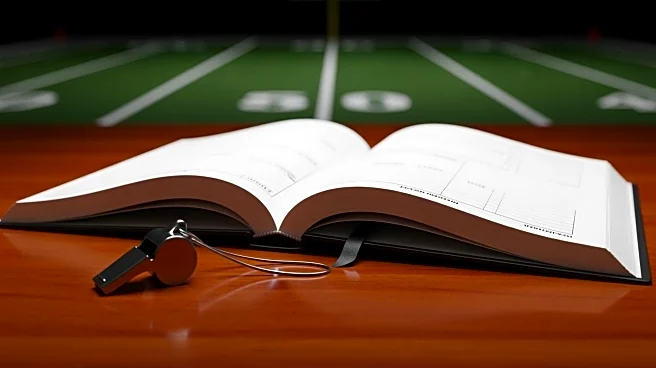What's Happening?
Michael Irvin, a Hall of Fame receiver, has expressed interest in coaching but believes his intense personality may not be suited for the role. Irvin, known for his high-energy presence, was inspired to
consider coaching after attending a former teammate's birthday party in 2016. Despite his interest, Irvin has been advised by NFL Commissioner Roger Goodell that his impact might be greater in his current high-profile media role. Irvin's reflections on coaching come amid discussions about his former team, the Dallas Cowboys, and their defensive struggles. He has been vocal about the team's issues but has not taken on a coaching role, citing his intense nature as a potential hindrance.
Why It's Important?
Irvin's potential move into coaching could have significant implications for the NFL, given his experience and influence. His decision to remain in media highlights the importance of diverse roles in sports beyond coaching. Irvin's insights into the game continue to shape public discourse, and his potential transition to coaching could bring a fresh perspective to team management. However, his acknowledgment of his intense nature raises questions about the adaptability of former players to coaching roles, a common transition in professional sports.
What's Next?
While Irvin has not committed to a coaching career, his ongoing commentary and influence in the media suggest he will continue to impact the NFL landscape. His discussions with other former players, like Deion Sanders, indicate a continued interest in the coaching realm. The NFL community may watch for any future moves by Irvin, as his involvement could bring new dynamics to team strategies and player development.
Beyond the Headlines
Irvin's story underscores the broader theme of career transitions for athletes post-retirement. The challenges he faces in potentially moving to coaching reflect the broader difficulties athletes encounter when shifting roles within the sports industry. This situation also highlights the balance between leveraging one's expertise in media versus direct team involvement, a decision many retired athletes face.










